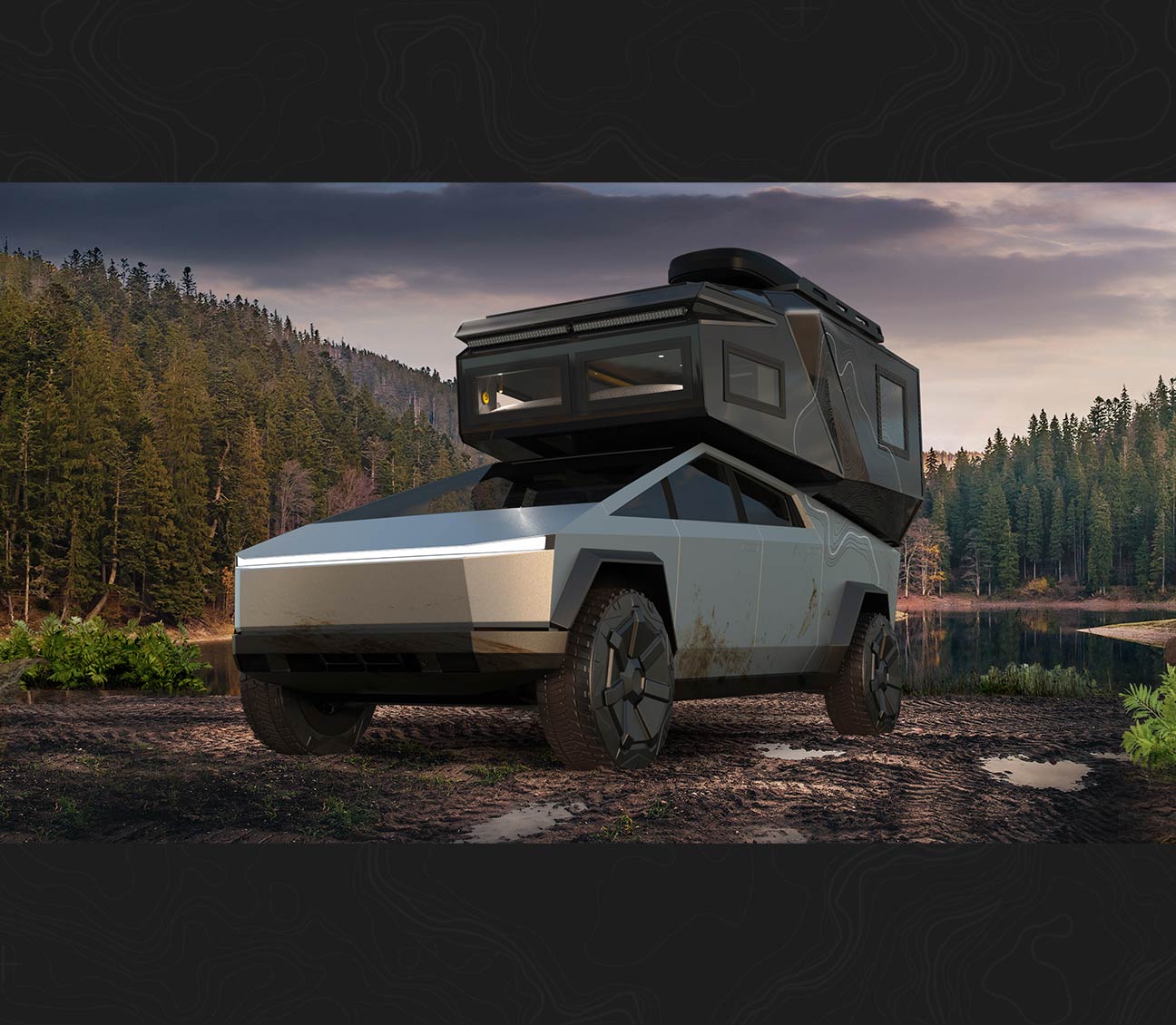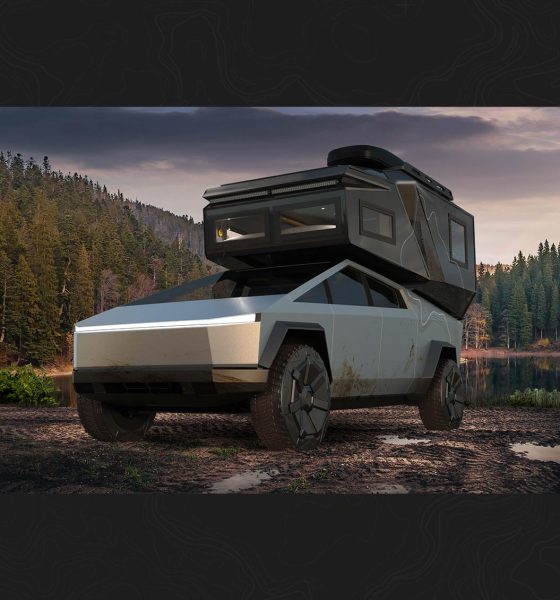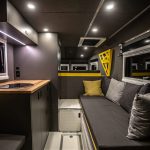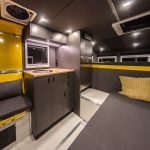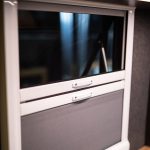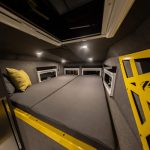Tesla Cybertruck add-ons continue to infiltrate the market even though the all-electric pickup from Elon Musk’s company won’t be produced for another six months. A product from company Loki called the Basecamp is now getting the Cybertruck treatment as well, adding luxurious living quarters to the back of the stainless steel-covered pickup from Tesla.
Unveiled in November 2019, the Tesla Cybertruck is the automaker’s first-ever pickup truck. Catching the eye of the public due to its unequivocally unique design, the Cybertruck has already accumulated over 1 million pre-orders, according to a fan-made tracker. The Cybertruck will have a multitude of uses, from construction to camping, to a daily driver, the pickup comes in three variants: a Single-Motor, Dual-Motor, and Tri-Motor, the latter being the most robust in terms of performance and towing capacity with a less than 2.9-second gap from 0-60 MPH, and over 14,000 pounds of pulling capability.
Ahead of its initial production phases that are slated for the end of 2021, according to Tesla CEO Elon Musk, numerous companies have come out with various designs of potential add-ons, including the Cyberlandr among others, that could make the Cybertruck the ultimate camping machine. While it’s already more than capable of handling difficult off-road terrain, it is also conveniently shaped for these third-party-produced living quarters. Loki plans to bring the next to the market, offering spacious and luxurious sleeping arrangements, a small kitchen, and a lounging area.
- Credit: Loki
- Credit: Loki
- Credit: Loki
- Credit: Loki
- Credit: Loki
Loki says that its Falcon Series products are “a combination of modern engineering and top tier craftsmanship.” Each unit is handbuilt and there are several options that buyers can choose from to make their build specific to their wants and needs.
On its website, it lists all of the following features for the Falcon Series:
MUD ROOM
- Removable interior shower
- Flexible shower head with quick connect
- Rails system for drying equipment
- Space converts to a seat/table area
- Bracket for removable table
- ARB air compressor
- Various USB, AC/DC outlets
LOUNGE AREA
- Multi-function seating / table area
- Removable 68 ”aluminum platforms
- Anchor points for additional bed/removable storage platform
- Portable Toilet Storage
- Bracket for removable table
KITCHENETTE AREA
- Ergonomic counter space
- Stainless steel sink with foldable tap and cover
- Mobile induction cooktop
- Suspended & floor storage space
- Multimedia monitor on removable arm
- Various USB, AC/DC outlets
- Garbage and recycling bin
- Fridge
BEDROOM AREA
- Removable aluminum bed platforms
- Queen bed capacity (60″ x 77″)
- Reading lamps
- Multimedia monitor on removable arm
- Dimmable LED lighting
- Various USB, AC/DC outlets
- Can be converted into storage space equipment
INTERIOR FEATURES
- LED lighting system
- MaxxAir Deluxe roof fan
- Multi-purpose rail system
- Infinite storage configuration and secondary bed
- Ultra-light wood furnishings
- Ultra-resistant floor covering
- First aid kit
- Multiple storage pockets
- 4 season insulation (R16)
- Roof hatch
HEATING / AIR CONDITIONING
- Webasto Heating Unit (Air/Water)
- 12V air conditioning
EXTERIOR FEATURES
- Front exterior LED bars up to 28,000 lumens
- Utility LEDs on the rear and sides
- Retractable canopy
- Utility roof rack
- Side supports
- Spare tire rack
- Electric rear panoramic door
- Screen panoramic door
- Secondary rear door
- Multi-purpose utility drawer
- Double glass windows with roller blackout blinds & bug screens
PLUMBING
- On-demand water pump
- Drinking water tank
- Greywater tank
The Loki Falcon Series also has a 360-watt solar power capability, a 600 amp/h lithium battery bank for on-the-go charging, and a 2,000-watt inverter and charger.
The Cybertruck Edition of Loki’s Basecamp will add $135,000 for its entry-level variant. You can lock up a unit with a $10,000 refundable deposit that will be deducted from the final purchase price of the Basecamp, the company’s website says.
What do you think? Let us know in the comments below, or be sure to email me at joey@teslarati.com or on Twitter @KlenderJoey.

Lifestyle
Tesla Model S Plaid battles China’s 1500 hp monster Nurburgring monster, with surprising results
There is just something about Tesla’s tuning and refinement that makes raw specs seem not as game-changing.
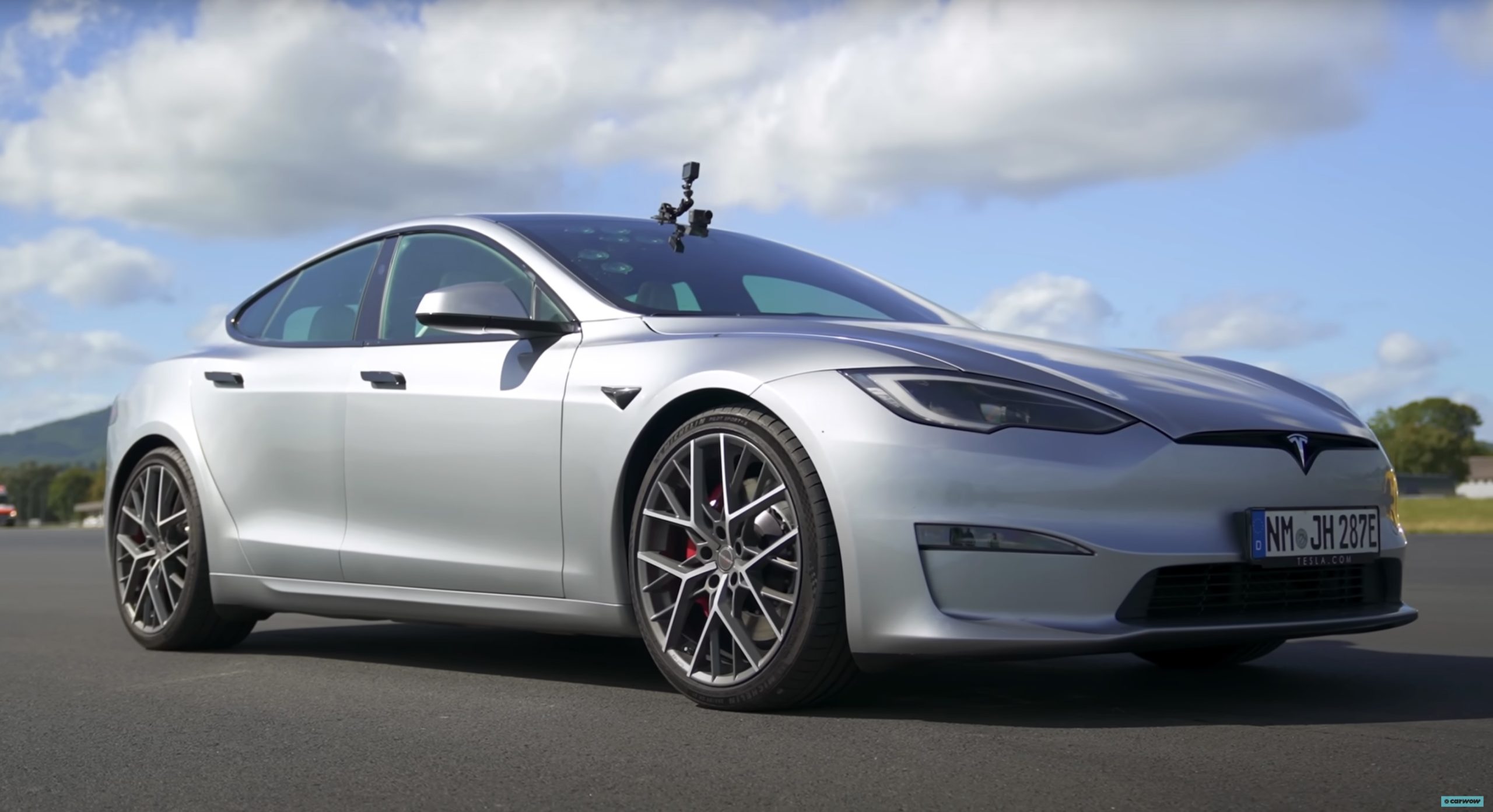
The Tesla Model S Plaid has been around for some time. Today, it is no longer the world’s quickest four-door electric sedan, nor is it the most powerful. As per a recent video from motoring YouTube channel Carwow, however, it seems like the Model S Plaid is still more than a match for some of its newer and more powerful rivals.
The monster from China
The Xiaomi SU7 Ultra is nothing short of a monster. Just like the Model S Plaid, it features three motors. It also has 1,548 hp and 1,770 Nm of torque. It’s All Wheel Drive and weighs a hefty 2,360 kg. The vehicle, which costs just about the equivalent of £55,000, has been recorded setting an insane 7:04.957 at the Nurburgring, surpassing the previous record held by the Porsche Taycan Turbo GT.
For all intents and purposes, the Model S Plaid looked outgunned in Carwow’s test. The Model S Plaid is no slouch with its three motors that produce 1,020 hp and 1,420 Nm of torque. It’s also a bit lighter at 2,190 kg despite its larger size. However, as the Carwow host pointed out, the Model S Plaid holds a 7:25.231 record in the Nurburgring. Compared to the Xiaomi SU7 Ultra’s record, the Model S Plaid’s lap time is notably slower.
Real-world tests
As could be seen in Carwow’s drag races, however, Tesla’s tech wizardry with the Model S Plaid is still hard to beat. The two vehicles competed in nine races, and the older Model S Plaid actually beat its newer, more powerful counterpart from China several times. At one point in the race, the Xiaomi SU7 Ultra hit its power limit due to its battery’s temperature, but the Model S Plaid was still going strong.
The Model S Plaid was first teased five years ago, in September 2020 during Tesla’s Battery Day. Since then, cars like the Lucid Air Sapphire and the Xiaomi SU7 Ultra have been released, surpassing its specs. But just like the Model Y ended up being the better all-rounder compared to the BYD Sealion 7 and the MG IM6, there is just something about Tesla’s tuning and refinement that makes raw specs seem not as game-changing.
Check out Carwow’s Model S Plaid vs Xiaomi SU7 drag race video below.
Lifestyle
500-mile test proves why Tesla Model Y still humiliates rivals in Europe
On paper, the BYD Sealion 7 and MG IM6 promised standout capabilities against the Model Y.
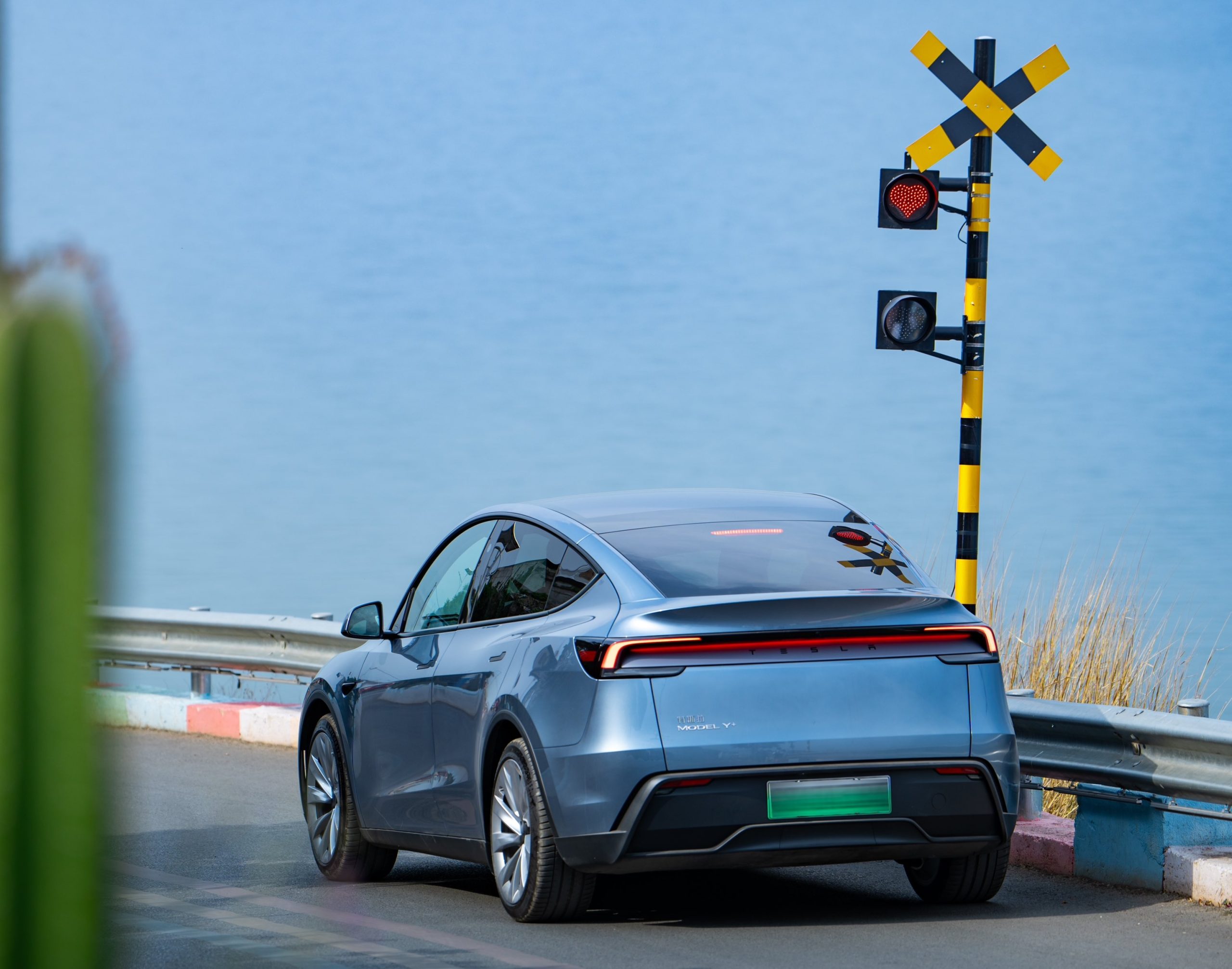
BYD is seeing a lot of momentum in Europe, so much so that mainstream media has taken every opportunity to argue that the Chinese automaker has beaten Tesla in the region. But while BYD sales this year in Europe are rising and Tesla’s registrations remain challenged, the raw capabilities of vehicles like the Model Y are difficult to deny.
This was highlighted in a 500-mile challenge by What Car? magazine, which showed that the new Tesla Model Y is more efficient, cheaper to run, and more reliable than rivals like the BYD Sealion 7, and even the nearly 400 KW-charging MG IM6.
Range and charging promises
On paper, the BYD Sealion 7 and MG IM6 promised standout capabilities against the Model Y. The Sealion 7 had more estimated range and the IM6 promised significantly faster charging. When faced with real-world conditions, however, it was still the Model Y that proved superior.
During the 500-mile test, the BYD nearly failed to reach a charging stop, arriving with less range than its display projected, as noted in a CarUp report. MG fared better, but its charging speeds never reached its promised nearly-400 kW charging speed. Tesla’s Model Y, by comparison, managed energy calculations precisely and arrived at each stop without issue.
Tesla leads in areas that matter
Charging times from 25% to 80% showed that the MG was the fastest at 17 minutes, while Tesla and BYD were close at 28 and 29 minutes, respectively. Overall efficiency and cost told a different story, however. The Model Y consumed 19.4 kWh per 100 km, compared to 22.2 for MG and 23.9 for BYD. Over the full trip, Tesla’s charging costs totaled just £82 thanks to its supercharger network, far below BYD’s £130 and MG’s £119.
What Car? Magazine’s testers concluded that despite BYD’s rapid sales growth and the MG IM6’s seriously impressive charging speeds, Tesla remains the more compelling real-world choice. The Model Y just offers stability, efficiency, and a proven charging infrastructure through its Supercharging network. And as per the magazine’s hosts, the Model Y is even the cheapest car to own among the three that were tested.
Watch What Car? Magazine’s 500-mile test in the video below.
Lifestyle
Tesla Cybertruck slapped with world’s least intimidating ticket, and it’s pure cringe
One cannot help but cringe and feel second-hand embarrassment at the idea of a person just driving around with a stack of these babies.
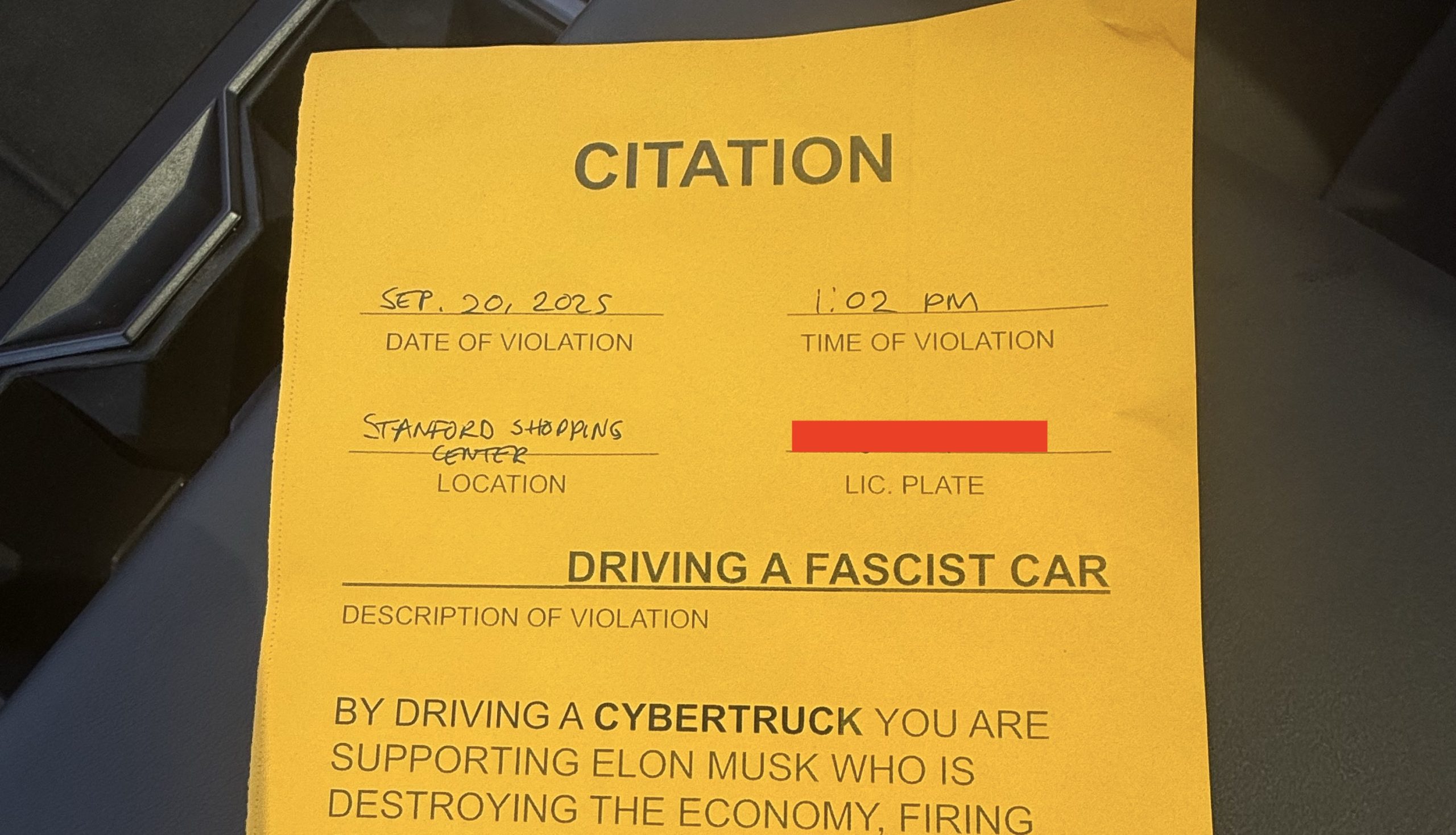
A Cybertruck parked at Stanford Shopping Center in California was recently hit with what might be the most try-hard piece of paper ever slipped under a wiper blade: a “fake citation” accusing the driver of supporting a “fascist car.”
The note, shared on X by Tesla staff program manager Ryan Torres, quickly made the rounds on X, where it quickly gained attention as an example of how not to protest.
The world’s least intimidating ticket
According to the citation, the supposed “violation” was “driving a fascist car.” The remedial action? Take the bus, call an Uber, or ride a bike. The note also dubbed Elon Musk a “chainsaw-wielding Nazi billionaire.” Now, protests against Tesla and Elon Musk have become commonplace this year, but one cannot help but cringe and feel second-hand embarrassment at the idea of a person just driving around with a stack of fake anti-Tesla/Musk citations.
Torres pointed out the irony himself in his post on X. Tesla currently employs over 140,000 Americans, and SpaceX has put the U.S. firmly back at the top of space technology. As Torres put it, maybe the person behind the world’s least intimidating ticket should “read a book on innovation before vandalizing” other people’s property.
Peak performative clownery
Not to mention that the fake ticket’s logic collapses under its own weight. EVs like the Cybertruck are literally designed to reduce emissions, not “destroy the economy.” If anything, Tesla has bolstered the United States’ economy by fueling jobs in engineering, manufacturing, and clean energy. It’s not the first time a Tesla has been the target of vandalism or politically charged notes, but this one stands out for sheer cringe value.
Torres summed it up neatly: “Peak clownery.” On that point, at least, the citation earns full marks. In a way, though, perhaps cringe fake tickets are not as bad as the literal firebombs that were being thrown at Tesla stores and cars earlier this year because some critics were gleefully misinformed about Elon Musk.
